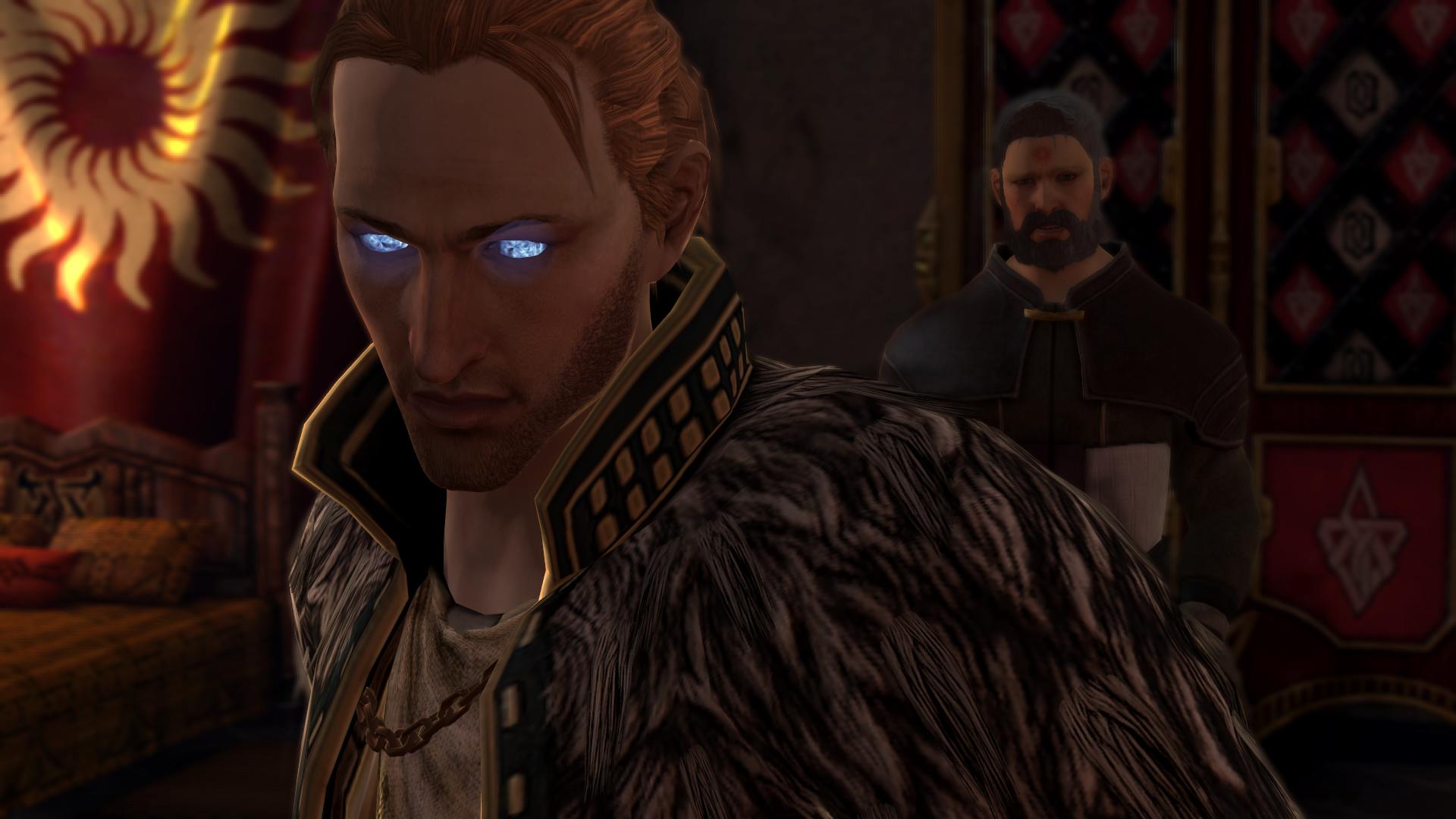Games are full of choices, moments where players have the ability to select between two mutually or at least partially exclusive options. They can also frequently present possibilities that are closer to The Magician’s Choice, an illusion of choice if not a choice itself. Both ways of determining future actions have their place, for the moment I want to consider the former, the selection of one of multiple possible actions through an act of decision based on an understanding of the potential consequences.
Such choices can occur across multiple layers, the aesthetic, “Do I wear the green robes or the red robes?”, the narrative “Do I select the aggressive dialogue line or the neutral dialogue line?”, or the mechanical “Do I upgrade Inferno or Cone of Cold?” When considering these choices it makes sense to examine their consequences within the layer in which they occur, if there is no mechanical or narrative difference between wearing green or red robes then it follows that the only criteria that needs to be considered when making that decisions are aesthetic concerns.
Obviously this is not always the case, to blur the separation between these layers choices in the aesthetic and narrative layer are frequently tied to underlying mechanical choices, ensuring that all actions in some way have a mechanical consequence. So the choice between the red robes and the green robes isn’t simply an aesthetic one, the red robes may provide a bonus to Fire Resistance, while the green robes increase Critical Hit chance; the aggressive dialogue line may lead to a fight, while the neutral line offers a new side quest.
Continued progress in a game is linked inextricably to choices made on the mechanical layer, be they clearly defined mechanical choices, or those contextualised as aesthetic or narrative choices. These choices do not necessary need to be complex systemic decisions, nor do they need to have long term consequences, choosing to fire the Shotgun over the Rocket Launcher is still a mechanical choice even if it is a fairly superficial one. With this in mind it is logical to conclude that during play actions taken are determined primarily by their mechanical impact rather than aesthetic or narrative considerations. Examined logically why would anybody make a choice that gave them a mechanical disadvantage? Even when a narrative choice is presented the consequences in a mechanical sense are often indicated, though not always explicitly. Consider Dragon Age II though I may choose to side with the apostate mage Anders in an argument, I am aware that increasing his approval or disapproval has direct mechanical benefits, his abilities will improve in different ways if he becomes a trusted friend or a bitter rival. This is a mechanical choice contextualised by narrative presentation.
Where the interconnectedness of choices across multiple layers becomes noteworthy is when choices are made in one layer that have detrimental effects in the others, specifically when choices are made in the aesthetic or narrative layer that have mechanical consequences. Logically players should never make choices that have detrimental mechanical consequences, it makes no sense to make a game difficult for yourself when that is not your intent. Things are rarely that straightforward, player behaviour, as with all human behaviour, is only rarely logical.

Let’s return to Anders and events that occurred during Dragon Age II. Since I had met him the relationship between the player character Hawke, and Anders had been a pleasant one. There were minor disagreements yes, but a lot of flirting and as a healer Anders had a vital mechanical role in my party. However certain events transpired in Act II, that led me to make a series of decisions that resulted in Anders leaving, for as it turned almost the entire rest of the game. I understood the consequences of making such a choice, and yet I made that decision not based on the mechanical consequences, but the narrative ones. I was no longer comfortable with Anders in my party, or more specifically I felt that regardless of my personal opinion, Hawke now considered him a risk to herself and her family. With Bethany confined to the Circle and unable to join the party, Anders’ departure left me with a single Mage (Merrill) who had no healing abilities. This forced me to rework my strategy and party composition. For the next several hours the mechanical experience of playing was altered dramatically because of an action I took based not on its mechanical presentation but on its narrative one. Everything about playing Dragon Age II that can be said to be uniquely mine, which is to say the experience and the memories I have, was changed by making that decision.
For choices to be meaningful their consequences need to be experienced, games need to be played to be understood. It was only through playing that the full impact of my actions revealed themselves.
Mechanical choices are the glue that tie the different layers of a game together. That does not mean players will, or should, always make decisions based on mechanical consequences exclusively.
It cannot be said with total accuracy that players only see games as dynamic mechanical systems and will make their decisions based exclusively on that basis. To focus design primarily on the mechanics of a game without equal consideration of the impact of the aesthetic, narrative or other contextualising elements at work risks creating a gulf between the design and the act of interacting with that design. The different presentational layers of a game are not engaged with in a vacuum, how choices are presented and responded to across these layers cannot fail to have some influence over the decision making process. What can seem like an ideal choice given the circumstances can easily become an undesirable one because of it’s impact on other layers of the game.